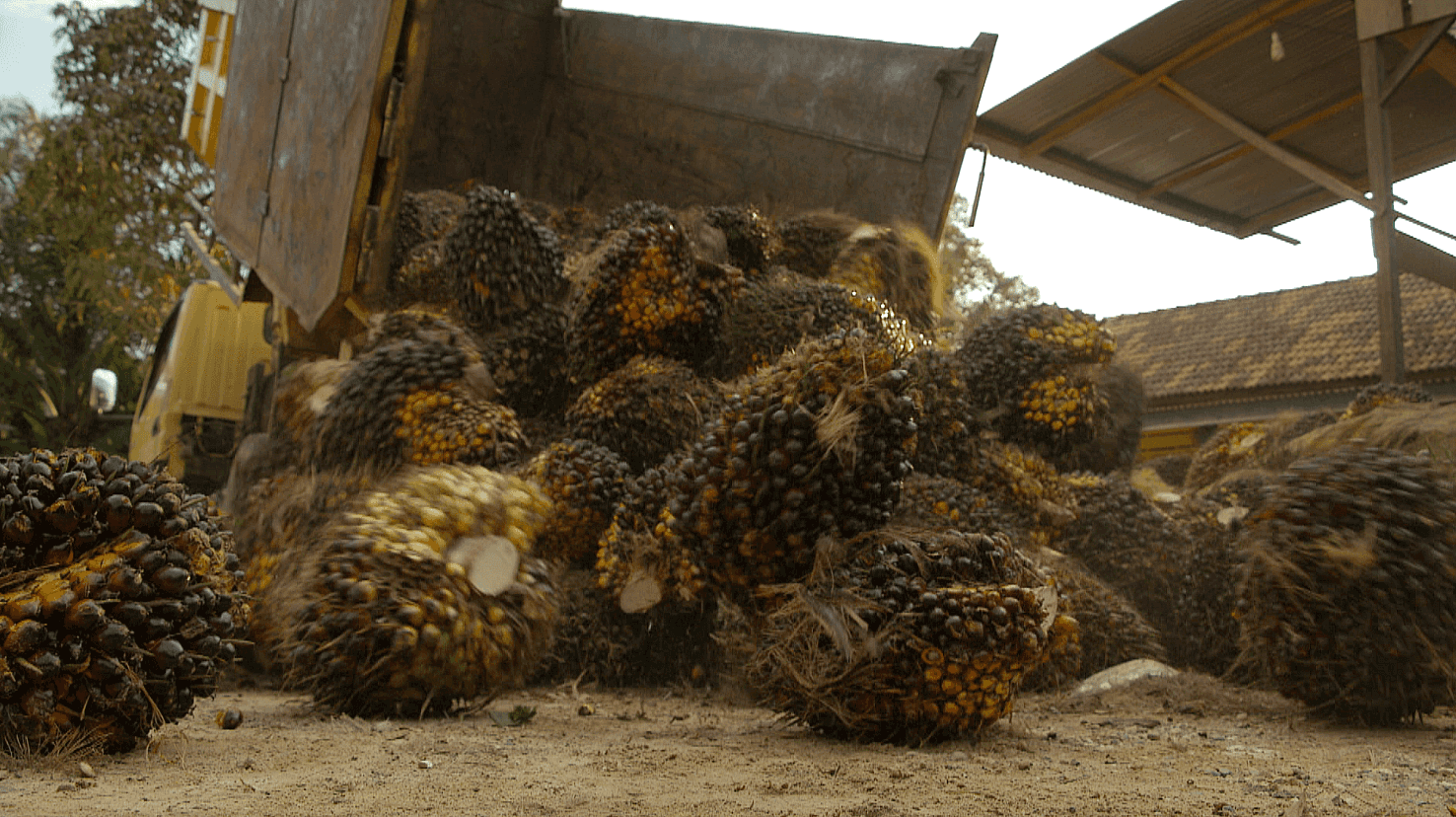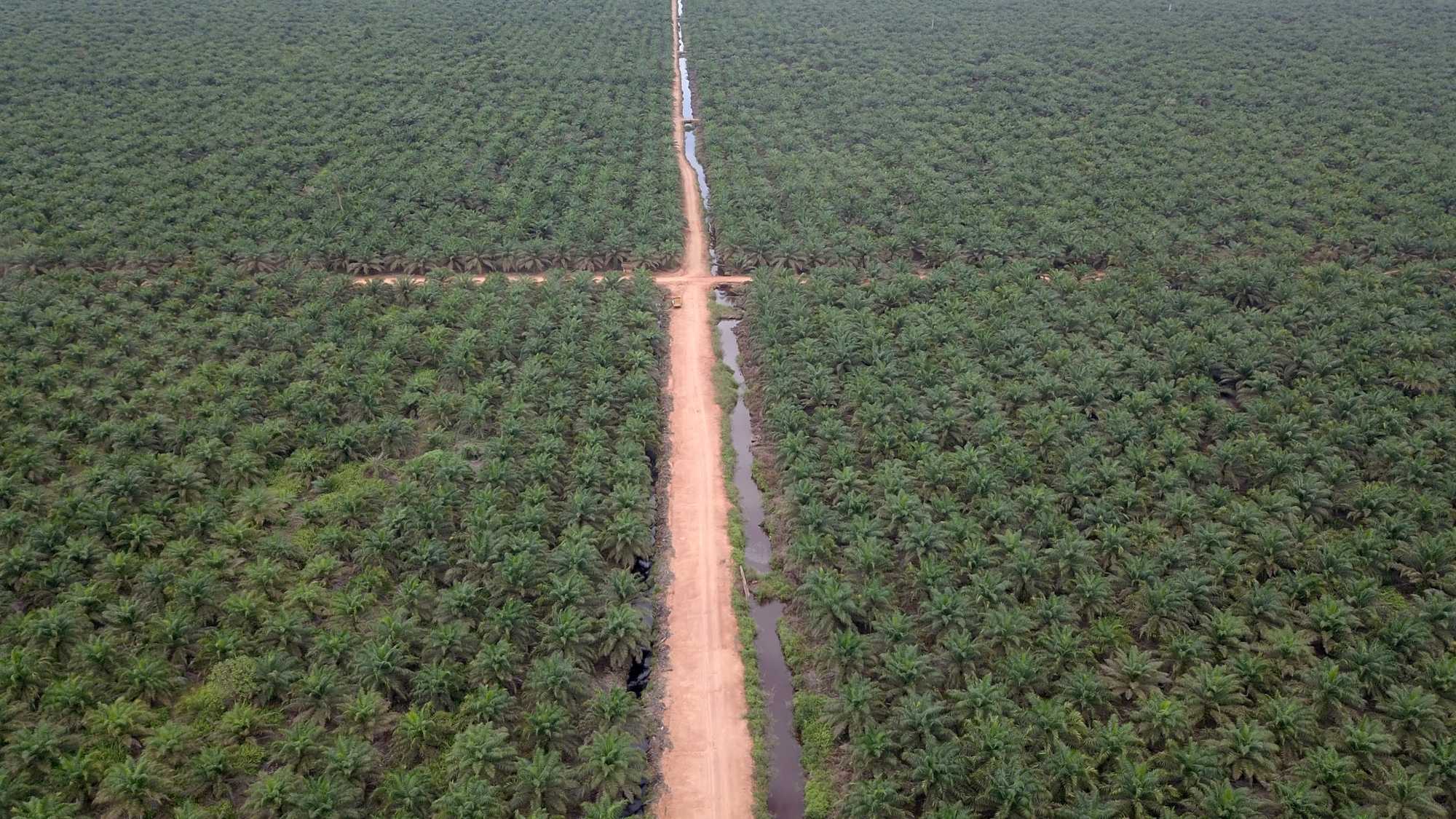An Indonesian government audit has found that almost 80 per cent of palm oil companies are failing to meet legal obligations to provide a portion of their plantations to communities. The audit reinforces the findings of a major investigation by The Gecko Project, BBC News and Mongabay published last year.
The audit, which was announced shortly after the investigation’s publication, collected data on the area of land that palm oil companies had provided to communities in plots known as “plasma”, among other topics.
Muhammad Yusuf Ateh, head of the body that led the audit – the Financial and Development Supervisory Agency, known as the BPKP – said that only 581 out of 2,864 companies audited were complying with obligations to provide plasma. ‘And that is still a tiny percentage,’ he said.
The audit’s finding corroborates analysis of government data by The Gecko Project, BBC News and Mongabay in May 2022, which found that companies had failed to provide hundreds of thousands of hectares of legally required plasma.

Ateh said that a government task force would now try to address the problem. The task force, which includes 14 ministries and agencies, was set up in April 2023 to improve governance of the palm oil sector and increase revenues that the government receives from it.
“The task force will fix palm oil governance from upstream to downstream,” Ateh said. “It has started by collecting data on oil palm land…and companies that have not carried out their obligations in accordance with government policies or regulations,” he added.
Ateh did not comment on whether the government would sanction companies that have failed to meet their obligations. “We need to know how much land companies have, and how much has been provided to smallholders,” he said. “Currently, that data does not exist.”
Sri Palupi, a researcher at legal advocacy group The Institute of Ecosoc Rights, questioned the government’s commitment to tackling problems in the palm oil sector, including with plasma.
"[This move] is good if it actually leads to a serious effort,” Sri told BBC Indonesia, “but this issue has been discussed and discussed for a long time." She suggested that the government’s pledge to take action may have been made, in part, because a national election was approaching.
Over the past year, local government officials have repeatedly promised to take action to deal with problems with plasma. The Gecko Project has identified 40 public statements highlighting problems from provincial and district-level government officials in 13 different administrations, spread across nine provinces. We also identified 14 actions taken by provincial and district governments, including starting special committees to investigate problems, and threats to revoke companies’ licenses.
Last month, following a large-scale protest, the head of the district of East Kotawarangin in Borneo’s Central Kalimantan province committed to produce an inventory of whether all companies in his jurisdiction were providing plasma. In Belitung, on the east coast of Sumatra, another district head pledged this week to cut down a company’s palm trees himself if it failed to provide the required area of plasma.
Such commitments have been consistently driven by community complaints over the past decade. Our original investigation documented 152 protests over plasma between 2012 and 2022, and they continue to emerge despite statements by the government.
Read more
Together with BBC News and Mongabay, we conducted a multi-year investigation into problems within Indonesia's plasma scheme. Our first investigation found villagers are losing millions of dollars every year because plantation firms are failing to comply with the law and discontent over the plasma scheme is driving protests across the country.
Our second investigation found that after giving up their land to enter plasma "partnerships" managed by companies, people were left with incomes below the international poverty line, with some struggling to pay-off multi-million dollar debts.
Read our reporting here.
